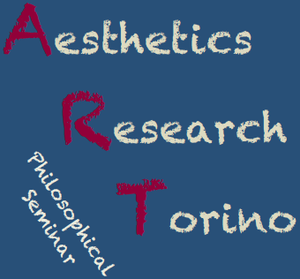Jakub Stejskal (Basel) ART Conference
Da: Mercoledì 13 gennaio 2021 ore 16:00
Fino a: Mercoledì 13 gennaio 2021 ore 18:00

ART (Aesthetics Research Torino) Philosophical Seminar
Prof. Jakub Stejskal
(Universität Basel)
January, 13th at 4 p.m.
Link: https://unito.webex.com/unito/j.php?MTID=md7feb26e5538c65a2eab818b255a4b76
Pw: ggAv6YE3T82
What Is an Image Format?
Unlike ‘style’, ‘medium’, or ‘form’, the concept of format has received comparatively little theoretical treatment from art historians or aestheticians. In this talk, I propose an expansive notion of image format, one that promises to shed some light on art-historical efforts at reconstructing reasons for the looks of images past.
On the standard understanding, image format is the shape or proportions of image’s material support that delimit figurative content by non-figurative means (think your typical photo frame). In other words, image formats are frames that delimit, but do not themselves design figurative content (i.e., they do not depict it). Frame-less images – such as rock art imagery – are thus format-less.
I argue that we should abandon the view that identifies formats with artificial frames because the shape or proportions of image’s material support can be established by figurative means rather than acts of artificial framing. However, an expansive notion of image format that would allow for formatting to involve depicting faces the danger of hollowing out the concept: there will be no difference between depicting and formatting. To avoid this outcome, I propose that we understand acts of image formatting as acts of delimiting figurative content to align it with image’s intended communicative context. On this understanding, image formats are public, prescriptive, replicable, and relatively objective means of delimiting figurative content.
Jakub Stejskal is an aesthetician with deep interest in the history, archaeology, and anthropology of visual art. Before joining eikones, he was a DFG research fellow at the Institut für Philosophie, Freie Universität Berlin, developing a framework for a postformalist aesthetics. Prior to that, he was Postdoc International Fellow (co-funded by Marie Curie and the DFG) at the Dahlem Humanities Center, Freie Universität Berlin, working on reconciling anthropological theories of art and philosophical aesthetics. He has been working on topics at the intersection of philosophical aesthetics, art history, and anthropology of art since he completed his PhD thesis (2014, Charles University, Prague), which had focused on investigating the links between post-Kantian aesthetics and social philosophy. Most of his published work can conveniently be classified as a philosophically informed critical analysis of the theoretical commitments underpinning anthropologists, archaeologists, and art historians’ claims about the aesthetic and social import of culturally/temporally remote art. His work has appeared in the British Journal of Aesthetics, Journal of Aesthetics and Art Criticism, RES: Anthropology and Aesthetics, Source: Notes in the History of Art, or the Journal of Art Historiography. He is an associate editor of Estetika: The European Journal of Aesthetics.
ART (Aesthetics Research Torino) is a periodic philosophical seminar organized by the Department of Philosophy and Educational Sciences of the University of Turin and the the PhD Program FINO.
Coordinators:
Prof. Alessandro Bertinetto (University of Turin).
Prof. Federico Vercellone (University of Turin).
Members:
Dr. Paolo Furia (University of Turin).
Dr. Lisa Giombini (University Rome 3).
Dr. Gregorio Tenti (FINO Doctoral School).
Dr. Alice Iacobone (FINO Doctoral School)
ART addresses different topics of the contemporary debate in Aesthetics: philosophy of beauty, philosophy of the arts, theory of sensory experience, philosophy of image and imagination, and history of aesthetics.
ART is supported by:
Centro Interuniversitario di Ricerca sulla Morfologia Francesco Moiso (CIM)
Centro di Ricerca Interdipartimentale di Logica, Linguaggio e Cognizione (LLC)
Centro Studi Arti della Modernità
Centro Studi Filosofico-religiosi "Luigi Pareyson"
Laboratorio di Ontologia (Labont)
ART is sponsored by:
Italian Society for Aesthetics (SIE)
European Society for Aesthetics (ESA)




